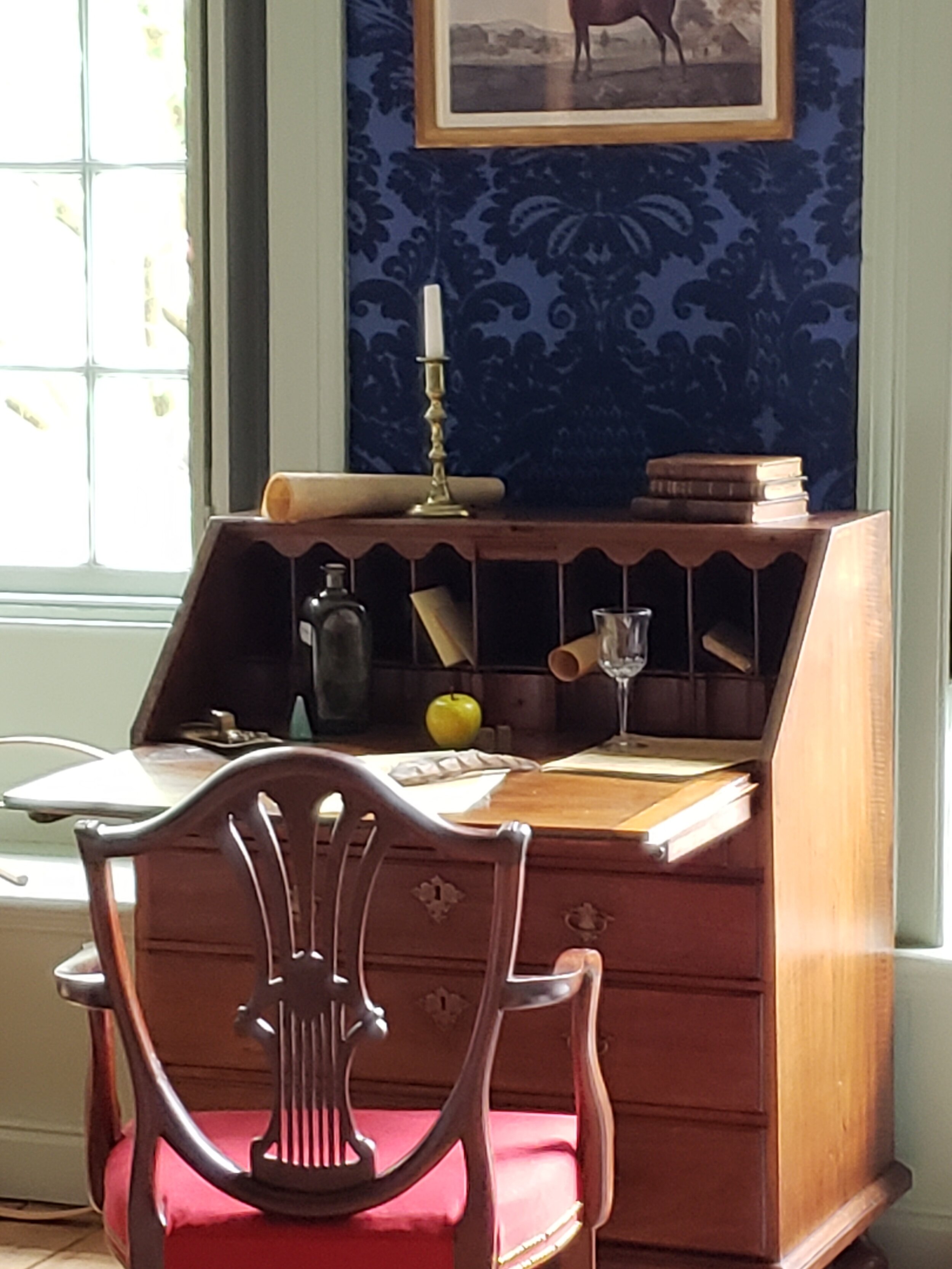
The Blue Bedroom at the Schuyler Mansion, Albany
The Divine and Long Island
An excerpt from the journal of Dr. James Thacher regarding the escape of General Washington following the Battle of Long Island
There are several accounts from those who participated in the Revolutionary War of inexplicable occurrences or Divine intervention that aided the Americans in their quest to recognized independence. Some of these stories have been inspirational to me in writing The Enlightened Series, such as the story of General Washington’s escape from British clutches following the Battle of Long Island (Aug. 27, 1776). The passage below is from the contemporaneous journal of Dr. James Thacher (Feb. 14, 1754 - May 26, 1844), first published in 1823 (original grammar). Given the extraordinary nature of this event, I could not help but allude to it in Witness to the Revolution when Anna Cloet shares Jonathan’s backstory about how he proved himself to General Washington and became an officer for the Continental Army by assisting with the general’s escape. Quite frankly (and may the Divine excuse me), what other explanation can there be?
September 15th, 1776
I have now ascertained, by accounts published, that the battle on Long Island took place on the 27th of August. The British and Hessian army, supposed to amount to twenty four thousand, landed on the island under cover of their shipping. The continental army consisted of ten thousand five hundred and fourteen effectives only; and these were so situated, that but a small part could be brought into action; the conflict therefore was extremely unequal. In point of numbers, of discipline, experience in war, and of artillery, the enemy possessed the most decided advantage; besides the important assistance afforded by a powerful fleet. The very judicious plan of attack by the British generals was carried into execution with irresistible ardor and impetuosity. The Americans defended themselves with great bravery, till a considerable number of them were completely surrounded, and the remainder dispersed. The palm of victory was on the side of the enemy; and our loss is very considerable. Major General Sullivan, and Lord Sterling, were obliged to surrender as prisoners; and our total loss is supposed to be not less than one thousand or twelve hundred in killed, wounded, and missing. The enemy suffered very severely.
After this unfortunate skirmishing, our army retreated within their lines at Brooklyn, and were exposed to the greatest hazard; our troops, fatigued and discouraged by defeat, a superior enemy in their front, and a powerful fleet about to enter the East River with a view of effectually cutting off their retreat; but an interposition of Providence, and the wisdom and vigilance of the Commander in Chief preserved our army from destruction. Having resolved to withdraw his army from its hazardous position, General Washington crossed over to the Island in the night of the 29th of August, and personally conducted the retreat in so successful a manner, under the most embarrassing circumstances, that it is considered as a remarkable example of good generalship. A circumstance which is remarked as manifestly Providential, is, that a thick fog enveloped the whole of Long Island in obscurity about two o’clock in the morning, while on the side of the enemy at New York, the atmosphere was perfectly clear. Thus by Providential interposition of an unusual fog, our army, consisting of nine thousand men, in one night embarked under great disadvantages, and with their baggage, provisions, stores, horses, and the munitions of war, cross a river, a mile or more wide, and landed at New York undiscovered and without material loss. The enemy were so near, that they were heard at work with their pick axes, and in about half an hour after, the fog cleared off and the enemy were seen taking possession of the American lines.